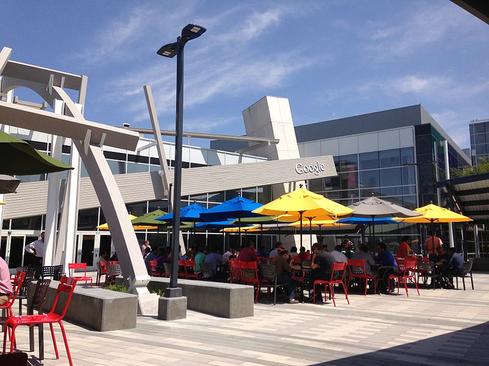Android, Chrome OS Merger: Why It Makes Sense
Google has not confirmed reports that it intended to merge Chrome OS and Android. Is the idea really that far-fetched? Here's how the resulting products of such a marriage would be beneficial to users and the enterprise.


10 Google Milestones: From Stanford Dorm To Alphabet
10 Google Milestones: From Stanford Dorm To Alphabet (Click image for larger view and slideshow.)
Despite the lack of official confirmation by Google, it looks like the tech giant is working on integrating its two main operating systems, Chrome OS and Android.
For those who have never tried a Chromebook or Chromebox, Chrome OS is the streamlined operating system based on the Chrome browser that powers those laptops and desktops. (I'm writing this article on an Acer Chromebox using Google Docs.)
Chrome OS is not a full-featured operating system, as are Windows and the Mac OS. But it gives good basic functionality for people who need a reliable, easy-to-use PC, without worrying about security, viruses, malware, or having the latest updates.
After moving back to Barcelona three years ago, my trusty Dell XPS laptop running Windows XP started to give me some problems, mostly related to battery and performance -- nothing strange for a five-year-old laptop. It was still working well, but I felt the need to replace it.
I didn't like the idea of getting a Windows 7 laptop. Windows started to feel heavy to me. Dealing with constant updates, security issues, and hardware compatibility challenges was too much. I wanted a simple, task-oriented OS. And, despite the fact that my wife is an Apple groupie, I was not ready to move into the Mac world.
Then I discovered Chromebooks.
I had already been using Google Apps (now Google for Work) for several years, and most of my work, including writing for InformationWeek and several of its sister UBM publications, was done on Google Docs and Sheets. I love the idea of keeping important files in the cloud and not having to worry about transferring data between devices.
At the same time, I was trying to do some work on the go using an Android tablet, paired with a Bluetooth keyboard. While the basic functionality was fine for writing emails and editing articles, the tablet didn't have the same functionality as a laptop. The most frustrating part was that Google Docs, Sheets, and Slides worked differently on Android than they did in a Chrome browser. Many of the editing features running Google Docs on the Chrome browser were missing on the Android app.
I decided to give Chromebooks a try. In Nov. 2013, I purchased a Samsung 11.6-inch model that was popular at the time and immediately fell in love. Booting took only five seconds; the battery lasted up to seven hours; and, while the performance was not comparable to many Windows laptops, it was great for a $250 laptop. Measuring 0.7 inch (18 mm) thick and weighing 2.4 pounds (1.1 kg) it was easy to take anywhere, especially without the power adapter.
But I was missing a few applications from Windows and Android. Chromebooks do not support Skype, the most-used tool for international communications. You can't install Office or any other Windows application, although Google's apps allow you to open any Office document and edit it directly. I also found Google Hangouts to have better quality than Skype for video conferencing, but that application is not as popular.
Android, however, has those applications. When I need to use Skype I switch to my Nexus tablet or Sony Xperia phone. When I need to check the weather, exchange rates, or open a special media file, there is an Android app for that.
Chrome OS already has many applications on the Chrome Web Store, but their number is nothing compared to Android. Android devices also lack the look and feel of apps running on Chrome.
That is why a merger of Chrome OS with Android would be a great thing. I need a good screen and keyboard. If I can get a 12-inch android tablet that gives me the same functionality of the Chromebook, plus all the Android apps, I will give it a try.
But I could also look for a 13-inch laptop running the new Android, knowing that all the functionality I already have on the Chrome devices is going to be there, in addition to all of the Android apps. The best thing about Chromebooks is their low price and great performance.
For users who want a high-end laptop, Google also sells a premium Chromebook, the Pixel, a 13-inch touchscreen computer with 2560 x 1700 resolution and a high-performance Intel Core i7 processor.
[Read Google Chromebooks Pitched for Work, Again.]
Chromebooks are already making their way to the enterprise, especially in places where there is an emphasis on security, such as banks and insurance companies. Because you can't install external apps, IT can manage the Chrome devices easily, and the PowerWash feature can be triggered remotely in case a machine is compromised.
Google and its partners are already selling different configurations of Chrome devices for work in areas such as Video Conferencing, Digital Signage, and Customer Service Kiosks, among others. A partnership between Google and VMware allows Chromebooks to be used to run virtualized applications.
I'm currently using two Chrome OS devices, an Acer Chromebox paired with a 23-inch monitor and a Logitech wireless keyboard, and an Acer Chromebook 13 that gives me 10 hours of battery power and a 13-inch full-HD display. To keep Windows compatibility I have (in the corner of my home office), the old Dell laptop, which I rarely use.
I am looking forward to the possible integration of Chrome OS into Android. It will make life easier and give me the choice of using any device, anywhere, with any app.
The only thing I am not looking forward to is Android malware making its way to my computer.
About the Author
You May Also Like






